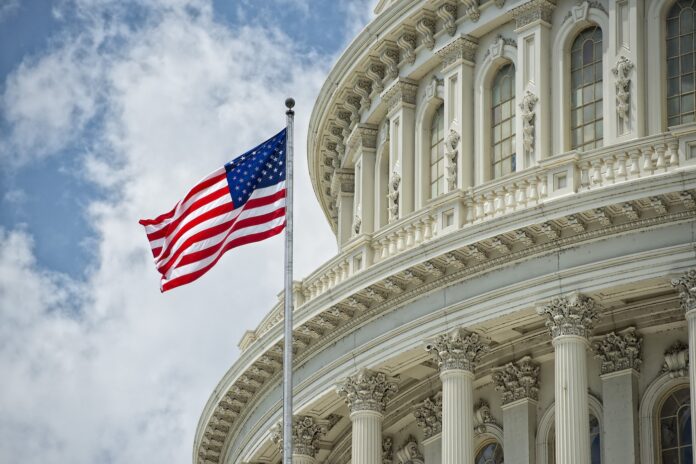WASHINGTON – Rumors of an imminent drug policy announcement swept through the industry Tuesday morning after the Associated Press reported the Drug Enforcement Administration (DEA) plans to reschedule cannabis.
Citing five anonymous sources with knowledge of the decision, the AP reported the agency in charge of United States drug policy will change the plant’s classification under the Controlled Substances Act from Schedule I — the most restrictive category, reserved for substances with high addiction potential and no known medical uses — to Schedule III. The potential new classification would place cannabis in the same category as most barbiturates as well as prescription painkillers including gabapentin and tramadol.
“The agency’s move, confirmed to the AP on Tuesday by five people familiar with the matter who spoke on the condition of anonymity to discuss the sensitive regulatory review, clears the last significant regulatory hurdle before the agency’s biggest policy change in more than 50 years can take effect,” the AP reported.
The DEA has not confirmed the decision, but reclassification would cap a process that began more than a year ago when President Joe Biden tasked the departments of Justice and Health and Human Services with reevaluating cannabis’s legal status.
Among the biggest benefits the industry likely would see from rescheduling is the possible elimination of Internal Revenue Code Section 280E, which prohibits businesses that traffic in federally illegal substances from deducting customary business expenses from their federal income taxes. Viridian Capital Advisors examined the potential impact of 280E’s demise in September, extrapolating findings from the second-quarter 2023 public filings of 12 multistate operators. The potential savings in tax liability totaled $700 million annually. While the major MSOs will save hundreds of millions of dollars, independent operators and smaller retail chains might fare even better.
“Smaller U.S. operators will perhaps benefit even more, especially non-integrated dispensary owners who typically have the most severe impact from 280E,” said Frank Colombo, managing director at Viridian Capital Advisors. “They may also find they become more attractive acquisition targets in a post-rescheduling world when access to capital becomes easier.”
While the tax savings from the elimination of 280E, potentially retroactive to January 1, 2024, draw the most attention, the impact of those savings will be felt across the industry as companies focus on growth and job creation. Other potential impacts include reduced banking fees as more banks offer industry services. With a more attractive profit margin, the industry could see significant new investment opportunities and the potential for the pharmaceutical industry to shift its well-funded attention to medical cannabis dominance.
“From a banking and lending perspective, we believe the reclassification of cannabis will broaden lending opportunities for cannabis businesses, leading to access to lower interest rates, increased access to capital, and improved financial stability across the industry,” said Safe Harbor Financial Chief Executive Officer Sundie Seefried. “This newfound access to traditional financing channels has the potential to stimulate growth, innovation, and compliance efforts within the industry, ultimately fostering economic development and job creation.”
If, in fact, the DEA proposes rescheduling, the process will not be rapid. Rescheduling will require a review by the White House Office of Management and Budget (OMB), which is tasked with overseeing the president’s vision across the executive branch. In Biden’s case, the vision incorporates a campaign promise for marijuana reform. In addition, OMB must determine whether any costs attach to rescheduling or the implementation of rules for compliance and enforcement. If the answer is yes, rescheduling will need to go before the congressional committees responsible for the federal budget.
After OMB (and potentially congressional) review, DEA will undertake a public comment period of 30–60 days before incorporating any necessary changes and publishing a final policy in the Federal Register. It is not unheard-of for proposed changes to go through more than one public comment period before they’re finalized, particularly if the proposal is controversial or scientifically complex.
The Federal Trade Commission’s (FTC) proposal to ban noncompete clauses, for example, drew mixed reactions and more than 26,000 comments during its public comment period this year. The original 90-day comment period was set to end March 20, but the FTC extended the period by 30 days after receiving requests for more time. Many corporate entities used the opportunity to challenge the FTC’s rule-making abilities while complaining the proposed changes were too far-reaching. Ultimately, 96 percent of comments supported the FTC’s proposed changes, and the agency announced the final rule four days after the public comment period closed. Similar comments against the DEA’s proposal are likely to fall on deaf ears with the agency holding the ultimate authority over changes to the Controlled Substances Act.
Finalized policy changes typically go into effect no less than thirty days after publication in the Federal Register, though the period may be longer if the rules for compliance and enforcement are complex or require significant infrastructure modifications before implementation.
- SEO Powered Content & PR Distribution. Get Amplified Today.
- PlatoData.Network Vertical Generative Ai. Empower Yourself. Access Here.
- PlatoAiStream. Web3 Intelligence. Knowledge Amplified. Access Here.
- PlatoESG. Carbon, CleanTech, Energy, Environment, Solar, Waste Management. Access Here.
- PlatoHealth. Biotech and Clinical Trials Intelligence. Access Here.
- Source: https://mgmagazine.com/cannabis-news/is-rescheduling-imminent/
- :has
- :is
- :not
- 000
- 1
- 12
- 2%
- 20
- 2023
- 2024
- 26
- 30
- 50
- 50 Years
- a
- abilities
- access
- acquisition
- across
- Act
- addiction
- addition
- administration
- advisors
- After
- against
- agency
- ago
- also
- American
- an
- and
- andrea
- announced
- Announcement
- Anonymity
- Anonymous
- answer
- any
- ARE
- AS
- At
- attach
- attention
- attractive
- authority
- Ban
- Banking
- Banks
- BE
- become
- becomes
- before
- began
- believe
- benefit
- benefits
- Better
- biden
- Biggest
- Branch
- broaden
- budget
- business
- businesses
- but
- by
- Campaign
- CAN
- cannabis
- cap
- capital
- capitol
- case
- Category
- chains
- challenge
- change
- Changes
- channels
- charge
- chief
- Chief Executive
- chief executive officer
- classification
- closed
- code
- comment
- comments
- committees
- Companies
- complex
- compliance
- condition
- CONFIRMED
- Congressional
- controlled
- controversial
- Corporate
- Costs
- could
- creation
- Days
- dc
- DEA
- decision
- deducting
- departments
- detail
- Determine
- Development
- Director
- discuss
- dollars
- Dominance
- draw
- drug
- Drug Enforcement Administration
- Drug Enforcement Administration (DEA)
- during
- easier
- Economic
- Economic Development
- effect
- efforts
- end
- enforcement
- entities
- especially
- Even
- example
- executive
- Executive Officer
- expenses
- extended
- fact
- Fall
- familiar
- far-reaching
- Federal
- federally
- Fees
- felt
- filings
- final
- finalized
- financial
- financial stability
- financing
- Find
- findings
- five
- Focus
- For
- fostering
- four
- frank
- from
- FTC
- Go
- Growth
- harbor
- Have
- Health
- High
- holding
- House
- HTTPS
- human
- Hundreds
- hundreds of millions
- hurdle
- i
- if
- iii
- Illegal
- Impact
- Impacts
- implementation
- improved
- in
- include
- Including
- Income
- incorporates
- incorporating
- increased
- independent
- industry
- Infrastructure
- Innovation
- interest
- Interest Rates
- internal
- into
- investment
- investment opportunities
- IT
- ITS
- January
- Job
- joe
- Joe Biden
- jpg
- Justice
- knowledge
- known
- Last
- leading
- Legal
- lending
- less
- liability
- likely
- longer
- lower
- major
- management
- managing
- Managing Director
- many
- March
- Margin
- Matter
- May..
- medical
- medical cannabis
- might
- million
- millions
- mixed
- Modifications
- more
- morning
- most
- move
- must
- necessary
- Need
- New
- new investment
- no
- of
- offer
- Office
- Officer
- on
- ONE
- opens
- operators
- opportunities
- Opportunity
- or
- original
- Other
- over
- overseeing
- owners
- particularly
- People
- perhaps
- period
- perspective
- Pharmaceutical
- photo
- Place
- plans
- plato
- Plato Data Intelligence
- PlatoData
- policy
- possible
- potential
- potentially
- prescription
- president
- president joe biden
- process
- Profit
- promise
- proposal
- proposed
- proposes
- public
- Publication
- Publishing
- rapid
- Rates
- receiving
- Reduced
- register
- regulatory
- Reported
- requests
- require
- reschedule
- reserved
- responsible
- Restrictive
- retail
- revenue
- review
- Rule
- rules
- Rumors
- s
- safe
- Said
- same
- Save
- Savings
- schedule
- Section
- see
- sensitive
- September
- Services
- set
- severe
- shift
- shutterstock
- significant
- smaller
- Sources
- Stability
- States
- stimulate
- Supported
- Take
- targets
- tasked
- tax
- Taxes
- than
- that
- The
- their
- they
- thirty
- this
- this year
- those
- though?
- Through
- time
- to
- too
- trade
- traditional
- traffic
- tramadol
- Tuesday
- typically
- u.s.
- ultimate
- Ultimately
- under
- undertake
- United
- United States
- used
- uses
- vision
- was
- washington
- we
- webp
- WELL
- were
- when
- whether
- which
- while
- white
- White House
- WHO
- will
- with
- within
- world
- would
- year
- years
- yes
- zephyrnet













